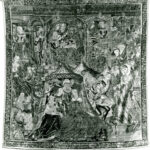Denis Sassou Nguesso is a prominent political figure from the Republic of Congo, who has held significant positions of power throughout his career. Born on November 23, 1943, in Edou, near Owando, in northern Congo, Sassou Nguesso has had a profound impact on the political landscape of his country. This biography provides a detailed overview of his life, career, and contributions.
Early Life and Education
Denis Sassou Nguesso grew up in a rural village in the northern part of Congo. He received his early education at local schools before attending the Lycée Félix Éboué in Brazzaville, the capital of Congo. Sassou Nguesso then pursued military training in Algeria, where he became involved in political activities and formed connections with other Congolese students.
Rise to Power
Sassou Nguesso played an instrumental role in the overthrow of President Alphonse Massamba-Débat in 1968, which marked the beginning of his political career. He initially served as a commander in the Congolese military and was later appointed as Minister of Defense. In 1977, Sassou Nguesso assumed the presidency after a coup d’état, ousting President Marien Ngouabi.
First Presidency (1979-1992)
During his first presidency, Sassou Nguesso implemented socialist policies and maintained close ties with the Soviet Union. He pursued nationalization efforts, particularly in the oil industry, aiming to assert greater control over Congo’s resources. His leadership faced significant challenges, including an economic downturn and civil unrest. In 1992, following pressure for democratic reforms, Sassou Nguesso lost the presidency in the country’s first multiparty elections.
Opposition and Return to Power
Following his defeat, Sassou Nguesso spent the next decade in opposition, leading the Congolese Labor Party (PCT) and advocating for political change. In 1997, during the country’s civil war, he led rebel forces that overthrew President Pascal Lissouba and regained power. Sassou Nguesso then assumed the presidency for the second time.
Second and Current Presidency (1997-Present)
Since his return to power, Sassou Nguesso has focused on rebuilding the country’s economy and consolidating political control. His presidency has been marked by efforts to attract foreign investment, particularly in the oil sector, to stimulate economic growth. However, critics argue that the benefits of these investments have not been evenly distributed among the population, leading to social and economic inequalities.
Political and Social Policies
Sassou Nguesso’s leadership has been characterized by a centralization of power and limited political freedoms. He has won multiple elections, but these have been marred by allegations of irregularities and suppression of opposition voices. His administration has faced criticism for corruption and human rights abuses, including restrictions on the media and dissenting voices.
International Involvement
Sassou Nguesso has been actively engaged in regional and international affairs. He has participated in numerous diplomatic initiatives, including peace negotiations in the Democratic Republic of Congo and the Central African Republic. He has also served as Chairman of the African Union and played a role in mediating conflicts in the Great Lakes region.
Legacy and Impact
Denis Sassou Nguesso’s legacy is a subject of debate. Supporters credit him with bringing stability to Congo after years of political turbulence and civil war. They highlight his efforts to develop infrastructure, improve healthcare, and expand access to education. However, critics argue that his leadership has perpetuated a culture of authoritarianism and economic inequality.
In conclusion, Denis Sassou Nguesso’s political career spans several decades, during which he has held significant power and influenced the trajectory of the Republic of Congo. As he continues to lead the country, his policies and actions shape the political, economic, and social landscape. The future will determine how his leadership will be remembered and its lasting impact on Congo.
Sources
1. Denis Sassou Nguesso. Britannica.
2. Africa Confidential: Profile: Denis Sassou Nguesso.
3. Al Jazeera: Congo President’s Son to Become Another Nkorea?
4. Reuters: Congo’s Sassou Nguesso to Stand for Re-Election in March.
5. United Nations: Secretary-General Congratulates Denis Sassou Nguesso.
6. African Elections Database: “Denis Sassou Nguesso – Congo (Brazzaville).” www.africanelections.org/leaders/show/167







